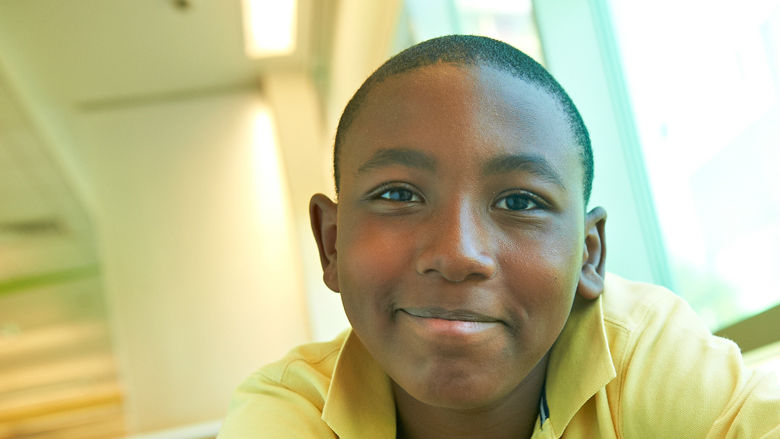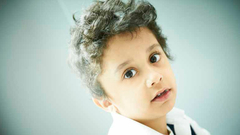Pediatric Brain Tumors
What are pediatric brain tumors?
A brain tumor is a growth of abnormal cells or the uncontrolled growth of normal cells in the brain. Primary brain tumors involve a growth that starts in the brain, rather than spreading to the brain from another part of the body.
Brain tumors may be benign (noncancerous) or malignant (cancerous). They may destroy or damage brain cells by producing inflammation and pressing on other parts of the brain. This pressure causes cerebral edema (brain swelling) and increased intracranial pressure (the pressure within the skull).
The cause of primary brain tumors is unknown, although some tumors such as retinoblastoma tend to be hereditary. Others tumors, such as craniopharyngioma, are present from birth.
Why Choose Us?
The Cancer Center at Children's Hospital of Philadelphia provides the newest, most advanced research and the most innovative treatments for all types of childhood cancer.
Central nervous system tumors (tumors of the brain and spine) make up about 20 percent of all childhood cancers; they are the second most common form of childhood cancer after leukemia. Brain tumors are the most common solid tumor in children.
Tumor types
The most common childhood brain tumors are astrocytoma, medulloblastoma, ependymoma and brain stem glioma. Gliomas account for 75 percent of brain tumors in young children but less than 50 percent in adults. Tumors found in craniospinal cavities may arise from the brain and/or spinal cord, or from other tissues or structures near them. Childhood tumors that arise in other organs of the body rarely spread to the nervous system, with the exception of neuroblastomas.
Treatment for pediatric brain tumors
Surgery for pediatric brain tumors
Surgery is usually the first step in treating brain tumors in children. Our goal within the Pediatric Surgical Oncology Program is to remove all or as much of the tumor as possible while maintaining neurological function. Pediatric brain tumor patients have a particular advantage when coming to Children’s Hospital of Philadelphia (CHOP) because of the extensive experience of our neurosurgeons and the close collaboration between neurosurgery, neuro-oncology, radiation oncology and diagnostic radiology.
Certain types of brain tumors located near the bottom of the skull, also called skull-base tumors, can be removed through the nose using tools called endoscopes. Because the base of the skull is close to the nostrils and roof of the mouth, your child’s surgeon can access the tumor more easily by going through the nostrils, minimizing the need for more invasive procedures. These procedures have many names, including nasal endoscopic neurosurgery, nasoendoscopic surgery or transsphenoidal surgery.
Surgery is also performed for a biopsy — a sample of tissue taken to examine the types of cells found in the tumor. This helps establish a diagnosis and treatment plan. This is frequently done when the tumor is surrounded by sensitive structures that may be damaged by surgical removal.
Other therapies used to treat brain tumors include:
- Chemotherapy (cancer drugs)
- Radiation therapy (high-energy rays that kill or shrink cancer cells)
- Proton therapy (a precise form of radiation therapy that is less damaging to surrounding tissue)
- Steroids to treat and prevent swelling in the brain
- High-dose chemotherapy, stem-cell rescue and blood and marrow transplantation
- Supportive care for the side effects of the tumor or treatment
- Rehabilitation to regain lost motor skills and muscle strength
- Continuous follow-up care to manage disease, detect recurrence of the tumor, and manage late effects of treatment



